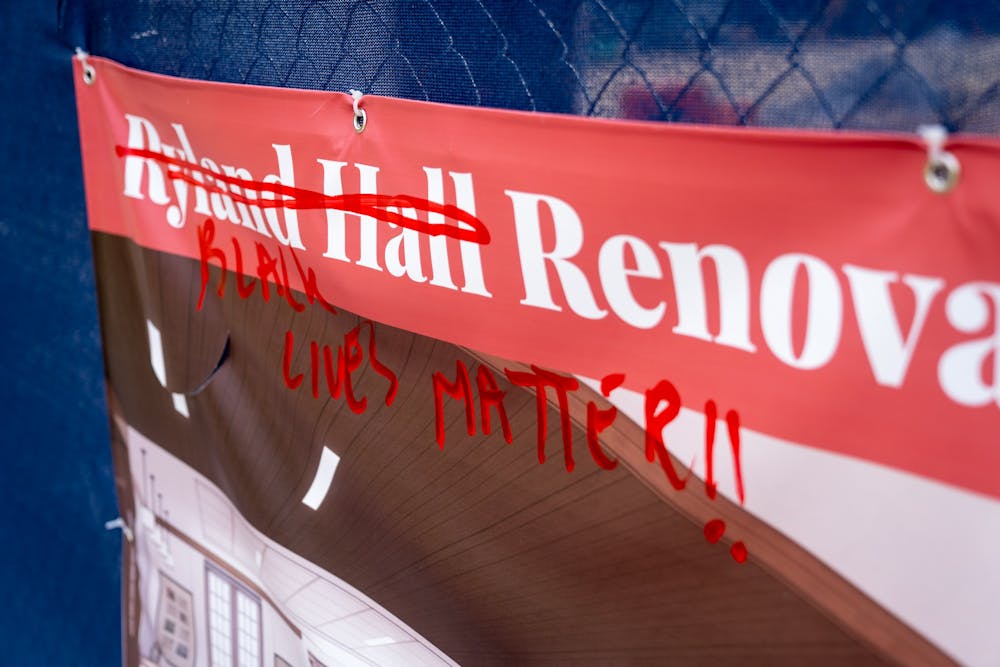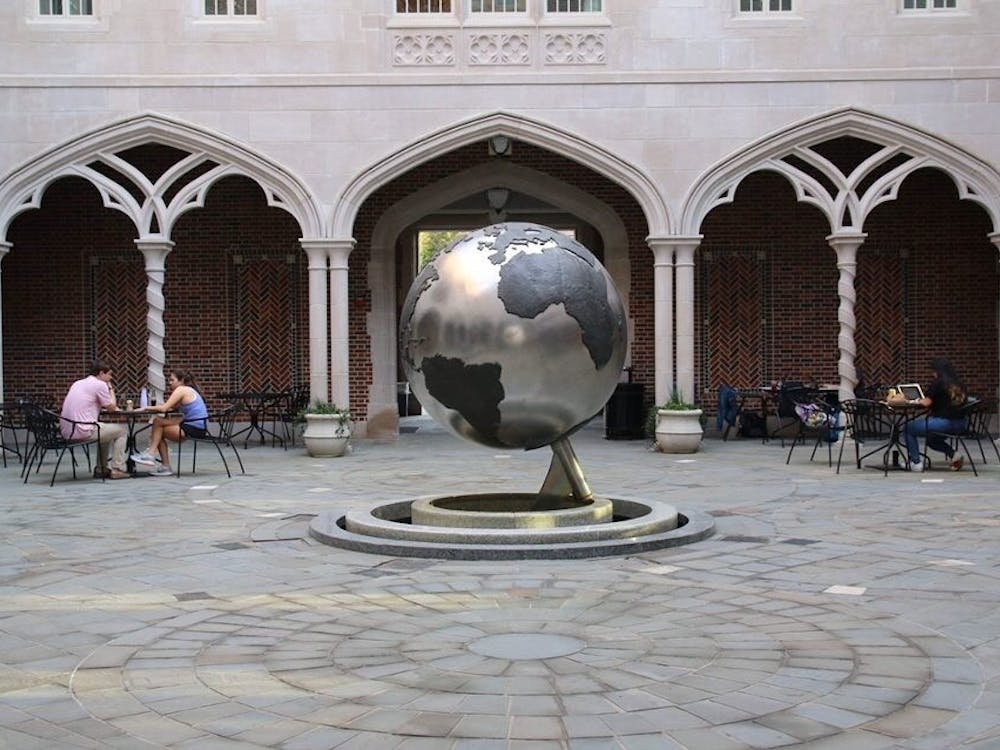The Naming Principles Commission submitted its final recommendations on March 25 outlining a process for community members to request the removal of a name from campus buildings, programs or other entities.
This comes almost a year after the University of Richmond created the Commission in response to protests calling for the renaming of Ryland Hall and then Freeman Hall.
Now, it is up to the Board of Trustees to decide whether it will implement the values set forth in the recommendations including that no entity should be named for a person who enslaved others, advocated for slavery or believed in eugenics — which was the case for Douglas Southall Freeman and Robert Ryland. However, no decision has been made regarding the two buildings named after them.
The recommendations were not surprising for junior Shira Greer, one of the students at the forefront of the Black Student Coalition that demanded the removal of the names. The principles were a step in the right direction, she said.
“It's nice to see, but at the same time it’s still sort of frustrating that a change still hasn't been made,” she said.
The announcement – sent to community members via email – concludes a period of feedback since the Commission released the draft principles in February. Community members have been engaged in the process during listening sessions, research and the results of the Gallup poll. The Commission recommended 10 principles for naming campus buildings. Naming a building, professorship, program or other entity is one of the highest and most visible honors UR can bestow, according to the first principle.
Although the report advocates for an advisory group made up of students, faculty, staff, administrators, alumni and trustees to review name removal requests within 30 days, the Board still has final authority over the decision, and in some cases, names may not be able to be removed because of “existing legal obligations.” The report also places an emphasis on transparency requesting that a record of renaming requests be made available to the public through a website.
The Commission recommended four reasons for why UR might consider naming a building in honor of a person or entity:
- To express the values of the institution
- To recognize especially meaningful contributions to the life of UR,
including significant philanthropic support of an institutional priority to advance UR’s excellence, or exemplary teaching, research, and scholarship - To recognize major milestones in UR’s development and progress
- To recognize excellence in a particular field especially germane to UR and the entity named
A concern that students brought up in listening sessions was the process of naming a building after someone because they donated a large sum of money to UR. That remains one of the reasons for naming a building in honor of a person, which senior Anthony Lawrence, the Richmond College Student Government Association president, sees as a compromise in a long battle, he said.
“There are things you have to give up and there's things you're going to have to accept as well that you may not like, and I think that is definitely one of those things,” he said.
People may be disqualified from being honored if they have been found to have engaged in significant wrongdoing or misconduct that constitutes a serious violation of UR’s mission and values or is materially damaging to UR’s reputation, according to the seventh principle. Examples of such would include forms of discrimination based on protected class, as legally defined, or conviction of a felony.
Enjoy what you're reading?
Signup for our newsletter
Besides the advances regarding naming decisions, Greer wants to see the other demands of the BSC garner more attention, she said.
“There's still a lot of work to be done, particularly in terms of materially supporting Black students,” Greer said.
The BSC also demanded that UR subsidize off-campus mental health services for Black students, the creation of an endowed chair for the Africana Studies program and a plan to expand the Multicultural Space into a standalone building.
Both Greer and Lawrence said they hoped the community support for the removal of the Ryland and Freeman names continues as they have seen the evolution of the movement from the original student government resolution to the report released Friday.
“It's coming full circle and it being my last year, especially, it's just nice to leave on a hopeful note,” Lawrence said. “It's nice to leave knowing that there's change that can possibly happen and hopefully I’ll be able to see that change.”
Contact editor-in-chief Jackie Llanos at jackie.llanoshernandez@richmond.edu and copy chief Madyson Fitzgerald at madyson.fitzgerald@richmond.edu.
Support independent student media
You can make a tax-deductible donation by clicking the button below, which takes you to our secure PayPal account. The page is set up to receive contributions in whatever amount you designate. We look forward to using the money we raise to further our mission of providing honest and accurate information to students, faculty, staff, alumni and others in the general public.
Donate Now



